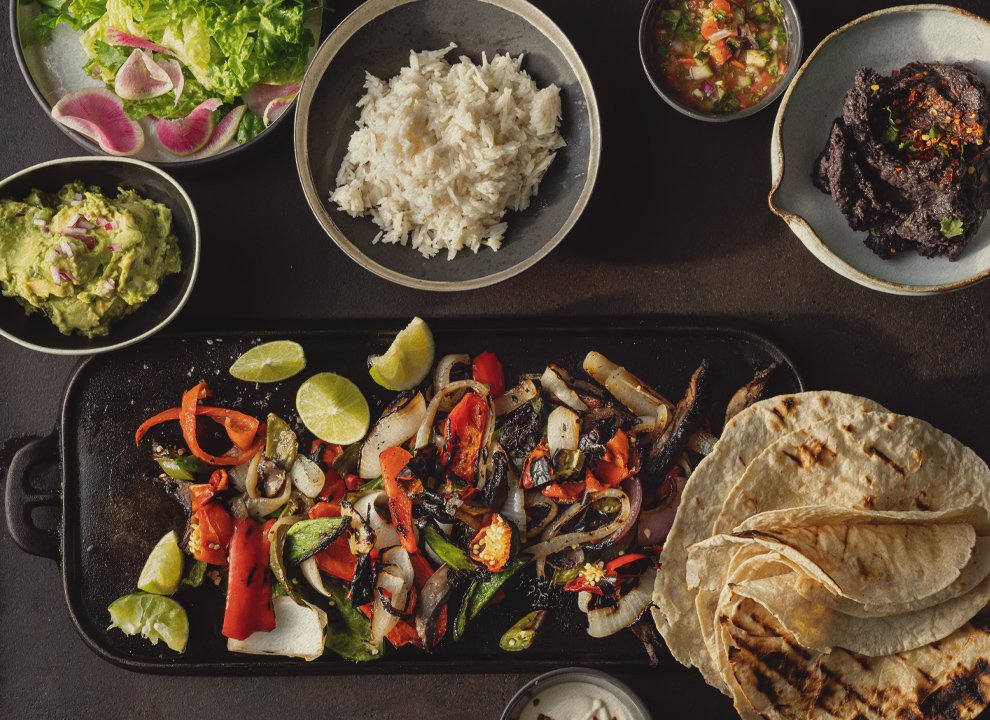Gracias Madre: A Beacon of High-Quality Pesticide-Free Food
In an era where health-conscious consumers are increasingly aware of the impact of their food choices on both personal well-being and the environment, restaurants like Gracias Madre are making a significant impact. Gracias Madre is renowned for its commitment to serving high-quality, plant-based, and pesticide-free food and keeping their menu as pure as possible. In this blog post, we will explore the top five concerns associated with consuming pesticides and highlight how dining at Gracias Madre ensures an experience centered around organic, pesticide-free foods.
What are Pesticides?
In conventional agriculture, pesticides are chemical or biological substances used to protect crops from weeds, insects, and infections. In the United States, acutely toxic organophosphate (OP) pesticides are most commonly used. Pesticides are used on fruits, vegetables, wheat, rice, olives, grass, flowers and cotton. The most common way to be exposed to pesticides is through human consumption of foods.
Considerations: How Gracias Madre is Taking Action
1. HEALTH IMPLICATIONS
Consuming pesticide-laden food can have detrimental effects on our health. Many pesticides used in conventional farming have proven to be toxic and can lead to various health issues. From respiratory problems to hormone disruption and irregularities, these chemicals can pose a significantly negative risk when consumed in the long-term. Gracias Madre recognizes the importance of offering pesticide-free food to protect the well-being of our patrons.
2. ORGANIC INTEGRITY
Gracias Madre takes pride in sourcing organic ingredients. Organic farming eschews the use of synthetic pesticides and relies on natural methods to control pests, enhance soil health, and promote biodiversity. By adhering to these strict standards, Gracias Madre ensures that the food they serve is free from harmful chemicals, upholding the integrity of the organic label.
3. SUPPORTING LOCAL FARMERS
Gracias Madre’s dedication to pesticide-free foods transcends beyond just the absence of chemicals. The restaurant actively supports local farmers who prioritize sustainable and organic practices. By forging partnerships with these farmers, Gracias Madre promotes a more resilient and sustainable local food system. This collaboration ensures that customers enjoy the freshest, most flavorful, and pesticide-free ingredients in their meals.
4. TASTE & QUALITY
Beyond the health and environmental benefits, choosing pesticide-free foods at Gracias Madre elevates the overall dining experience. The use of fresh, organic ingredients enhances flavors, textures and aromas of each dish, resulting in a truly exceptional culinary adventure. By prioritizing the quality of ingredients, Gracias Madre exemplifies that healthy and sustainable food can be delicious and satisfying.
Conclusion
Gracias Madre stands as a shining example of a restaurant committed to providing high-quality, plant-based, pesticide-free food offerings. By addressing the top concerns associated with consuming pesticides, Gracias Madre ensures a dining experience that prioritizes health, sustainability, and flavor.. So, the next time you’re looking for a remarkable dining experience that aligns with your values, visit Gracias Madre, where your palate and well-being will be treated to an unforgettable journey through organic, pesticide-free cuisine.
WRITTEN BY
Jayne Pinsky, Gracias Madre’s Resident Dietitian, RD
References
Jurak G, Bošnir J, Đikić D, et al. The Risk Assessment of Pesticide Ingestion with Fruit and Vegetables for Consumer's Health. Int J Food Sci. 2021;2021:9990219. Published 2021 Jun 14. doi:10.1155/2021/9990219
Fast facts about health risks of pesticides in food. (n.d.). https://depts.washington.edu/ceeh/downloads/FF_Pesticides.pdf
Reeves WR, McGuire MK, Stokes M, Vicini JL. Assessing the Safety of Pesticides in Food: How Current Regulations Protect Human Health. Adv Nutr. 2019;10(1):80-88. doi:10.1093/advances/nmy061
World Health Organization. (n.d.-a). Pesticide residues in food. World Health Organization. https://www.who.int/news-room/fact-sheets/detail/pesticide-residues-in-food

